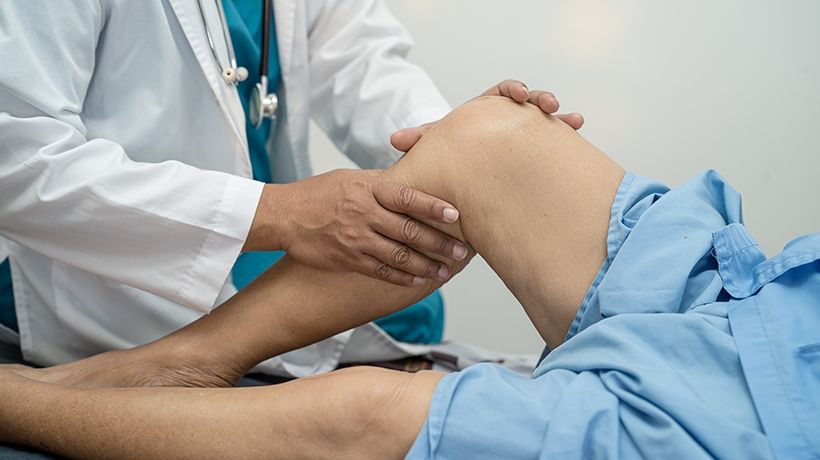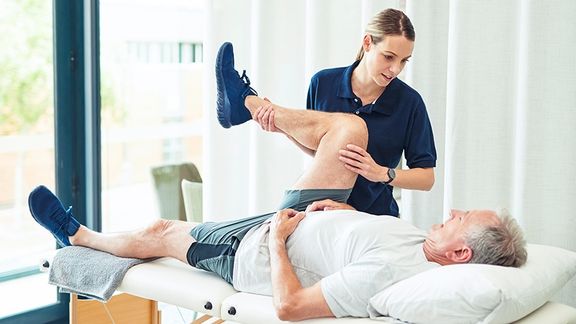Joint pain can be a challenging journey. Our team understands that bone, joint, and spine injuries have a physical and mental impact, and that recovery takes time.
With over 50 years of combined experience caring for our community, our physicians offer expert care backed by a dedicated support system. From surgery to rehabilitation, our team is here to guide you towards recovery and relief.
Total Knee Joint Replacement
Total knee replacements are among the most common orthopedic surgeries. When knee arthritis causes pain when you walk, a knee replacement can get rid of that pain and restore function to your knee. A knee replacement uses a prosthetic metal and plastic joint to replace bone and cartilage that’s been damaged by arthritis. Your knee replacement procedure may take place in our QMG Surgery Center. Our center is a state-of-the-art facility equipped with modern operating rooms and advanced technology to optimize outcomes.
Total Hip Joint Replacement
During a total hip replacement, your surgeon removes damaged bone and cartilage from your hip. The damaged joint is replaced with a metal and plastic joint. Hip replacements provide reliable pain relief for many years.
You may qualify for a hip replacement if you experience a hip fracture or have hip arthritis that causes serious pain. After your surgery and recovery, you should be able to return to work and play without experiencing pain.
Total Shoulder Replacement
Though total shoulder replacements aren’t very common, they offer the same reliable pain relief as other replacement surgeries. You may be more likely to need a shoulder replacement if your job or recreational activities require you to lift your arms over your head often.
Similar to a hip replacement, a shoulder replacement uses a prosthetic ball-and-socket joint to help restore pain-free movement to your shoulder. The metal and plastic joint lasts for years so you can continue to work or play as normal.





